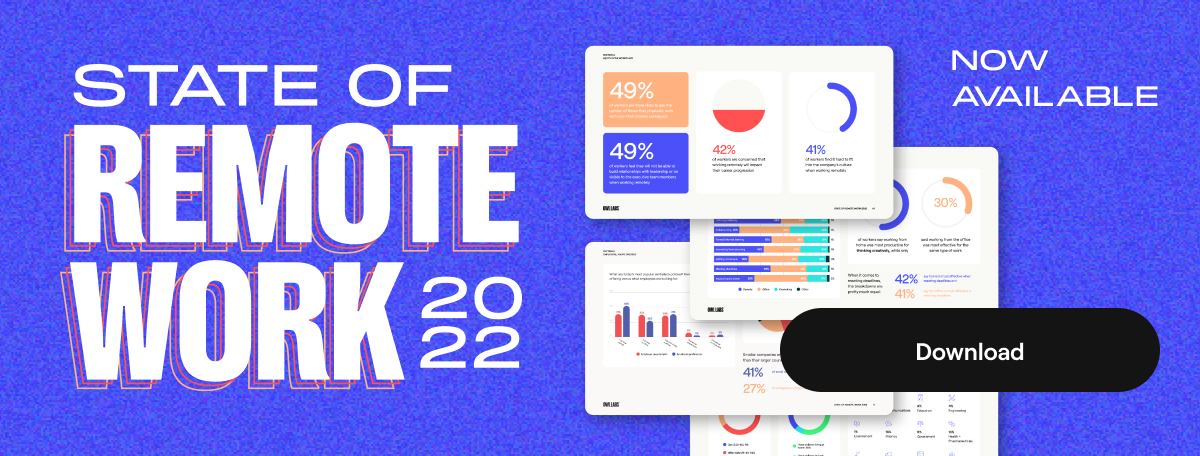The rise of remote and hybrid work has come with plenty of benefits for employees, including an average savings of $19.11 a day for hybrid workers and 62% of remote workers reporting a higher level of productivity, according to our 2022 State of Remote Work. However, now that the world is several years into this shift in working there are some adverse effects to remote work that are becoming more prevalent.
U.S. Surgeon General Vivek Murthy recently released a report warning about a loneliness epidemic in the United States and cited the rise of remote work as a direct contributor to the problem. This doesn’t mean that remote work isn’t a viable way of working, but it does mean that managers should actively be helping their teams invest in workplace relationships.
In a traditional office environment, workplace relationships naturally develop through time spent together. Remote and hybrid workers need to be more intentional in building these relationships, and managers should be creating an environment designed to foster them.
Strengthen social infrastructures
The surgeon general suggests that we strengthen social infrastructures. For remote workers, this means getting out of the house sometimes and working from more public locations like coffee shops, co-working spaces, or, yes, even going into the office occasionally. Employers can help facilitate this type of relationship building by redesigning their office spaces for collaboration and connection, like removing cubicles and building more common areas for working.
A hybrid work schedule is an easy way to give your employees the flexibility to work remotely while making sure they’re getting opportunities to bond with their co-workers in person on a regular basis.
Reform digital environments
Another suggestion from the surgeon general is to reform digital environments to ensure that technology does not detract from meaningful and healing connections with others. One of the best ways to do this is to invest in technology that enhances collaboration between employees, even when they can’t be in the same location.
Front-and-center teleconferencing solutions like the Meeting Owl 3 + Owl Bar are exactly the type of tools that employers should be investing in. This technology allows employees to clearly see and hear each other, without having to change where they’re sitting or looking during hybrid meetings. The result is natural and inclusive meeting experiences for every employee, even the ones who are working remotely.
When workers aren’t physically in the same location, there is a decided lack of opportunity for social interactions outside of day-to-day work operations. Managers should ensure that their employees are given opportunities to interact socially with each other, whether through occasional offsite meetings together or virtual social gatherings like workbook clubs or shared music playlists.
Of course, employers can only do so much. Employees must also take it upon themselves to consciously pursue social opportunities with their co-workers. Healthy workplace relationships can improve individual happiness, productivity, and even boost employee retention rates.
A Harvard Business Review article looking at improving employee happiness found that social connections are not only essential for fostering a strong sense of purpose and well-being for employees in the workplace but can actually have a measurable impact on the bottom line of a business.
“Effective management of social capital within organizations facilitates learning and knowledge sharing, increases employee retention and engagement, reduces burnout, sparks innovation, and improves employee and organizational performance.” _HBR
While traditional key performance indicators like revenue and R.O.I. are always important to the success of any business, the organizations that are going to thrive are the ones that begin treating workplace relationships as integral to long-term success.
The world’s shift towards hybrid work has come with undeniable advantages, like cost savings and increased productivity for hybrid workers. However, this shift has also brought to light some concerning side effects that demand attention. U.S. Surgeon General Vivek Murthy’s warning about the loneliness epidemic, directly linked to the rise of remote work, emphasizes the need for proactive measures to cultivate workplace relationships. While remote and hybrid work offer flexibility, the responsibility falls on managers to create environments that facilitate meaningful connections among team members.


